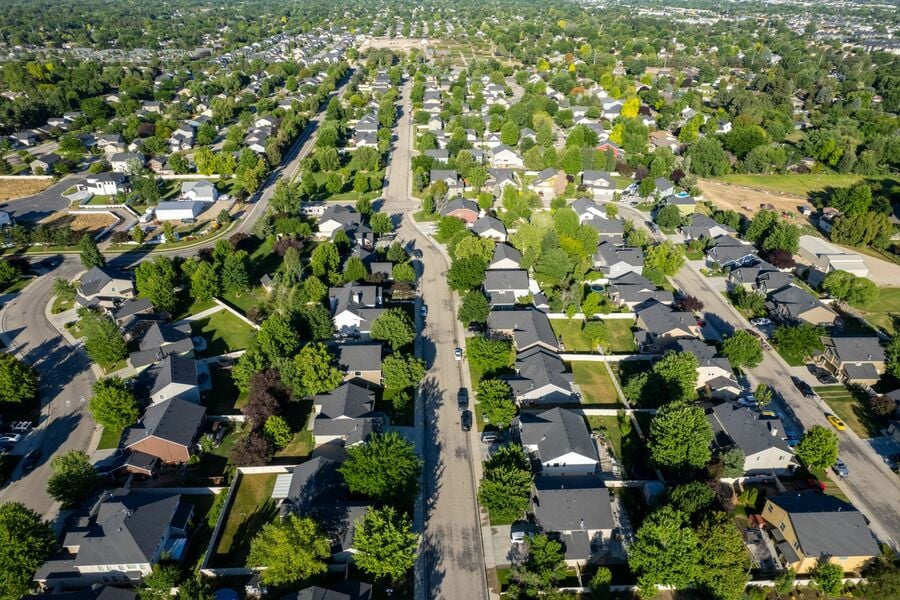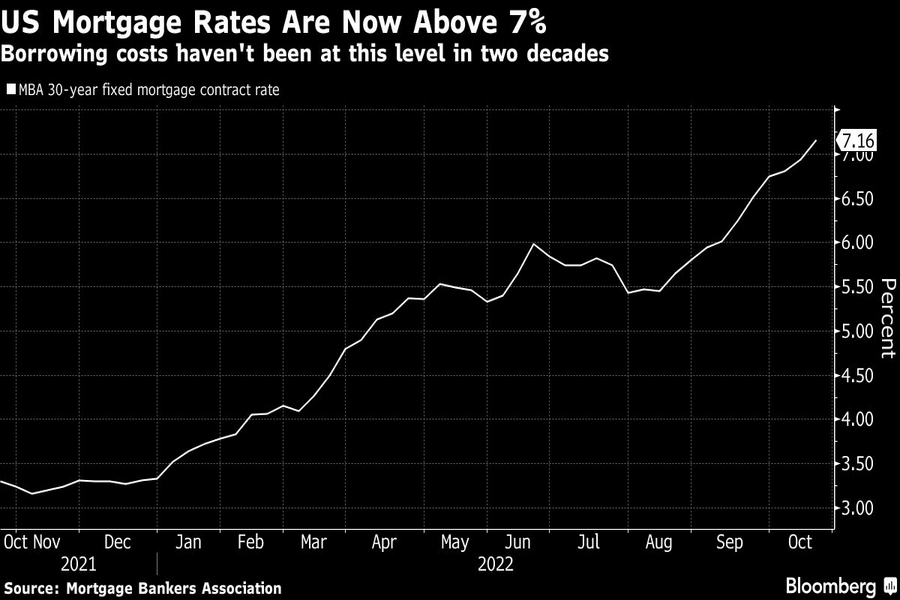

U.S. mortgage rates topped 7% for the first time in more than two decades, extending a string of steep increases that have stymied housing demand.
The contract rate on a 30-year fixed mortgage rose 22 basis points to 7.16% in the week ended Oct. 21, marking the 10th-straight increase, according to Mortgage Bankers Association data released Wednesday.

With rising mortgage rates, the group’s gauge of applications to purchase or refinance a home dropped for the 10th time in 11 weeks, falling by 1.7% to the lowest level since 1997.
The housing market — one of the most sensitive parts of the economy to changes in interest rates — has deteriorated rapidly this year as the Federal Reserve tightens policy to rein in inflation. Separate data Tuesday showed a measure of home prices in 20 large U.S. cities fell 1.3% in August on a month-over-month basis, the most since March 2009.
MBA’s index of applications to purchase a home slumped 2.3% to the weakest reading since early 2015, while the gauge of refinancing was little changed.
The MBA survey, which has been conducted weekly since 1990, uses responses from mortgage bankers, commercial banks and thrifts. The data cover more than 75% of all retail residential mortgage applications in the U.S.

Relationships are key to our business but advisors are often slow to engage in specific activities designed to foster them.

Whichever path you go down, act now while you're still in control.

Pro-bitcoin professionals, however, say the cryptocurrency has ushered in change.

“LPL has evolved significantly over the last decade and still wants to scale up,” says one industry executive.

Survey findings from the Nationwide Retirement Institute offers pearls of planning wisdom from 60- to 65-year-olds, as well as insights into concerns.
Streamline your outreach with Aidentified's AI-driven solutions
This season’s market volatility: Positioning for rate relief, income growth and the AI rebound
